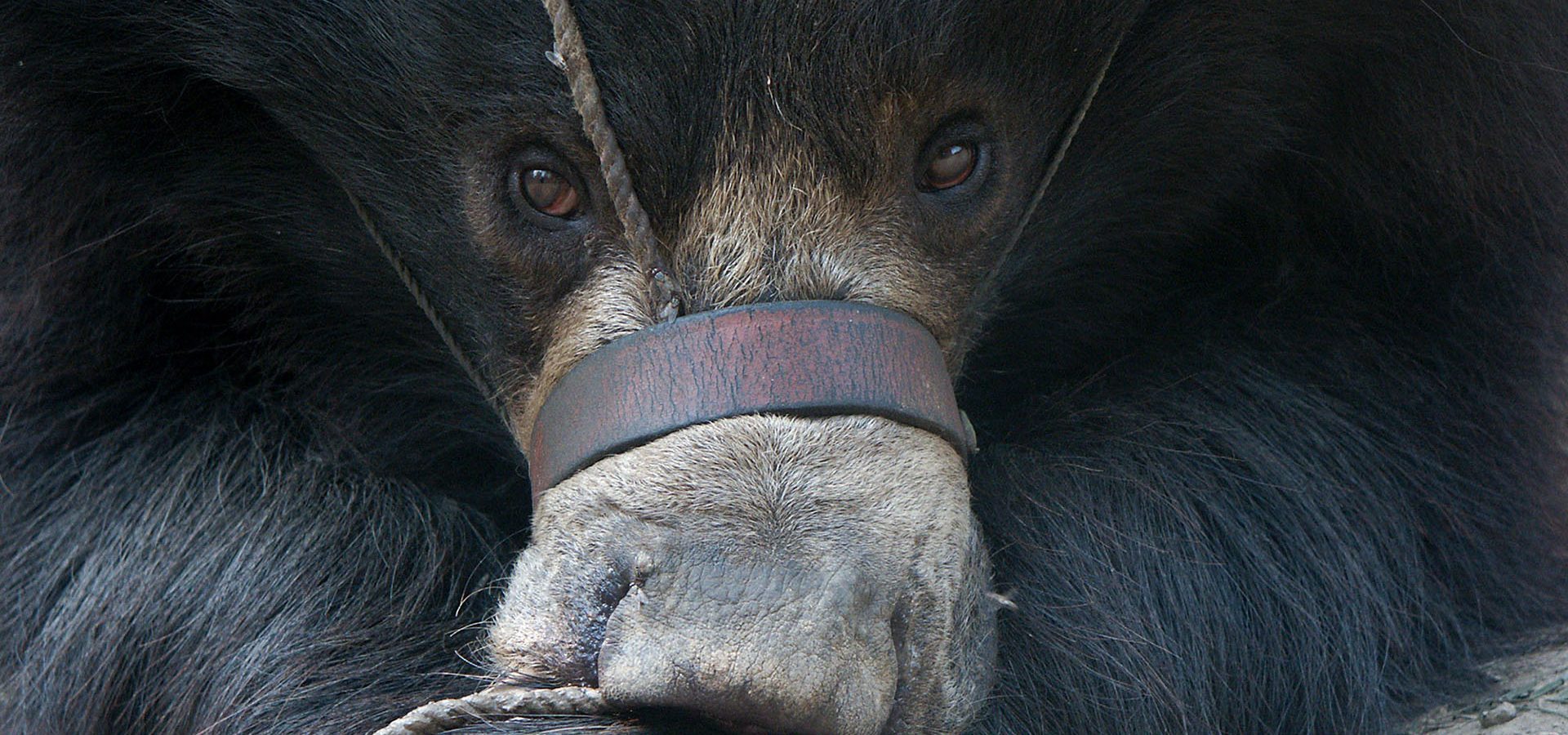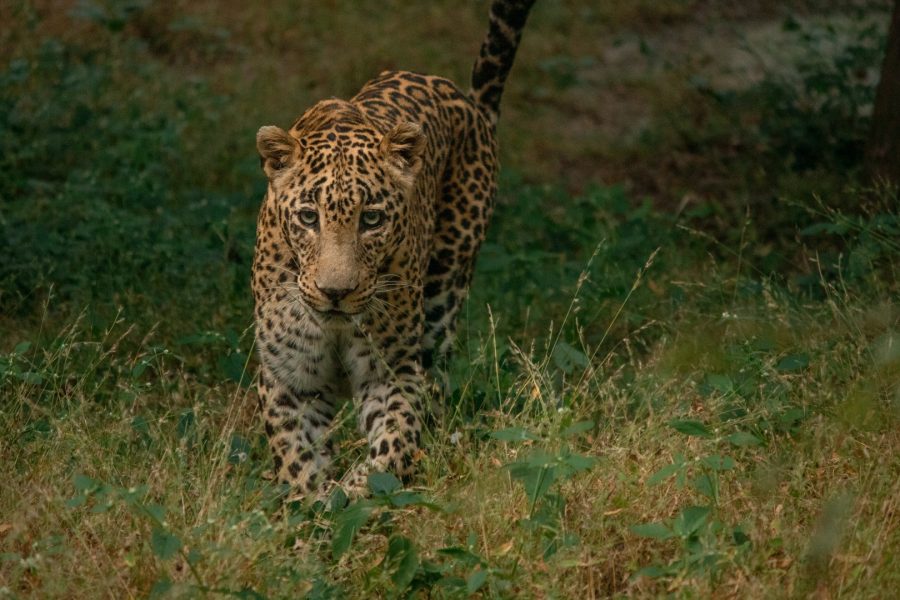The image of a lone Sloth bear performing in a way that appears to be a dance, is indeed a grim portrayal of this particular wild animal. It may amuse the people who watch the bear ‘dance’, but little do they know that the bear is ‘forced’ to perform out of sheer pain and fear. The sound of the damaru being played by his master is a symbol of enslavement.
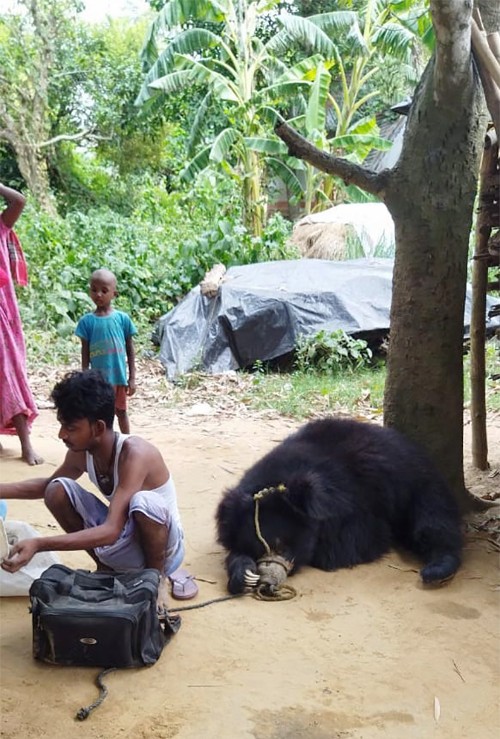
Resembling a similar scenario, the West Bengal Forest Department was alerted about such a ‘dancing’ bear in Malda, which is a small town within the state. Taking swift action, the forest department dispatched a team of officers to intercept and seize the bear from illegal custody. The animal was being used in Nepal as a ‘dancing’ bear for street performances and the perpetrators were transporting the bear illegally from an area near the Indo-Nepal border in Bihar into West Bengal. Three offenders were arrested by the forest department and charged with violations of the Wildlife (Protection) Act, (WPA) 1972.
The rescued Sloth bear is a male, approximately 6 years old. The rescue operation was carried out by officers of the forest department under the guidance of B. Siddhartha, Divisional Forest Officer (DFO), Malda.
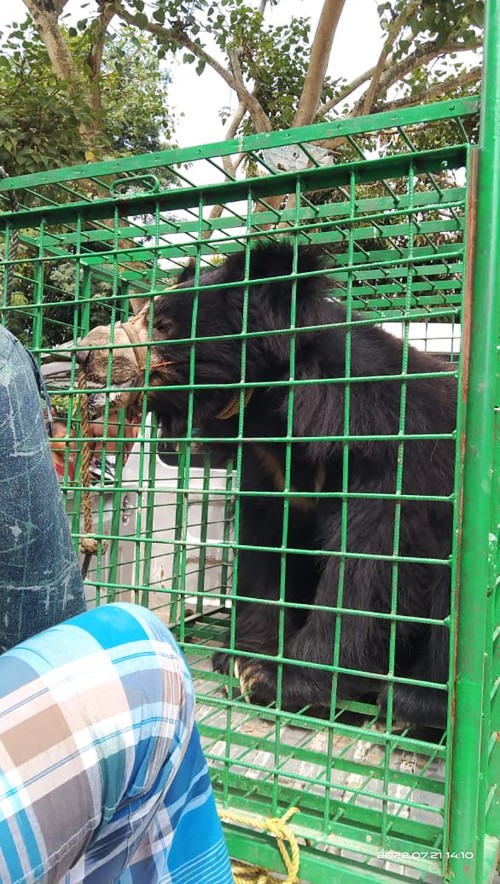
For those who are not familiar with the plight of Sloth bears that are held captive for illegal wildlife trade, they are forced to live in horrible conditions. This rescued bear’s teeth had been brutally smashed with metal rods. Due to prolonged malnutrition, he appeared extremely weak and emaciated. His delicate muzzle had been pierced, and a rope was pushed through it. This rope was constantly tugged, resulting in a severe muzzle wound.
A bear is trained by tugging the rope, the pain from which compels the animal to stand on its hind legs for street performances. This act is grossly misunderstood as dancing. The timely rescue of this particular bear has saved the poor animal from a lifetime of unspeakable cruelty caused by the barbaric ‘dancing’ bear tradition.
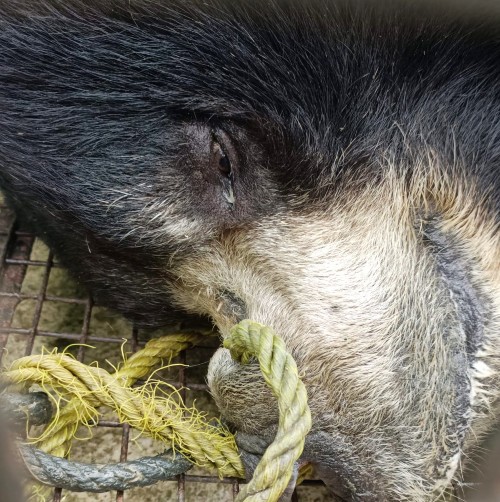
B. Siddhartha, DFO, Malda district stated, “The Sloth bear is a Schedule I species under the Wildlife (Protection) Act, 1972 which grants it the same level of protection status as tigers, pangolins and elephants. The conservation of Sloth bears is crucial and we will not tolerate wildlife crime in any form.”
Sloth bears, listed as ‘Vulnerable’ on the IUCN Red List, are targeted by poachers for their body parts and to be traded as live animals for street performances. Keeping in mind the well-being of the bear, the Malda district court ordered the rehabilitation of the bear at the West Bengal Bear Rescue Centre in Purulia. The bear is currently receiving medical treatment and care at this rescue centre which is jointly run by Wildlife SOS and the West Bengal Forest Department.
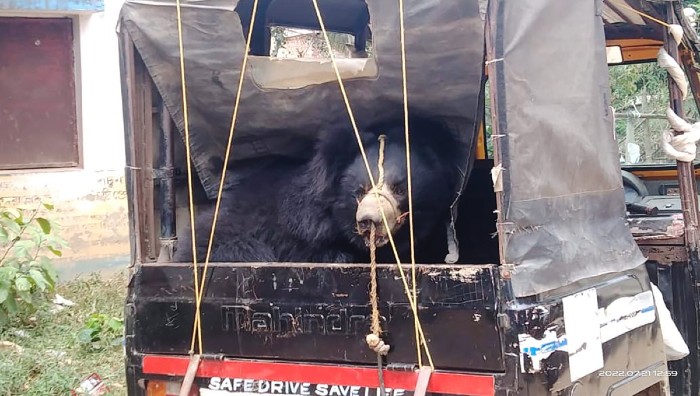
The first step on his road to recovery has been the removal of the restrictive rope from his wounded muzzle. The removal of this rope signifies the act of shedding the remnants of the bear’s former life as he transitions into a kinder, safer one with us.
Despite strong legal protection, Sloth bears are targeted by poachers for various reasons. They are trafficked across porous borders for use in the cruel ‘dancing’ bear practice or their body parts and organs are sold on the black market for their use in alternative medicine. Wildlife poachers and traffickers take advantage of the semi-porous borders of India to smuggle wild animals and contraband and conceal themselves in remote areas. That is why Wildlife SOS’ anti-poaching unit ‘Forest Watch’ assists forest department enforcement agencies to curb crimes like these and nab the offenders. In an almost similar case in 2019, Wildlife SOS rescued five Sloth bears from a remote forested area near the Indo-Nepal border. The bears were meant to be sold off, when Wildlife SOS intervened and rescued them from the terrible fate, and finally brought them to our Agra Bear Rescue Facility.
Even in this case, the quick intervention of the West Bengal Forest Department saved the bear from what could have been an otherwise miserable life. The bear, whom we have lovingly named Baloo (after the bear in the popular children’s book – The Jungle Book) will be under the long-term care of Wildlife SOS. Help us take care of Baloo so that he can have a peaceful life and regain his trust in human beings. You can become a monthly donor for Wildlife SOS and support our life-saving work.

